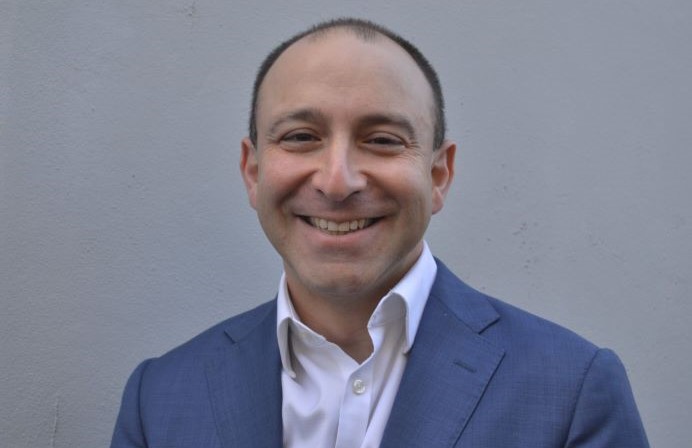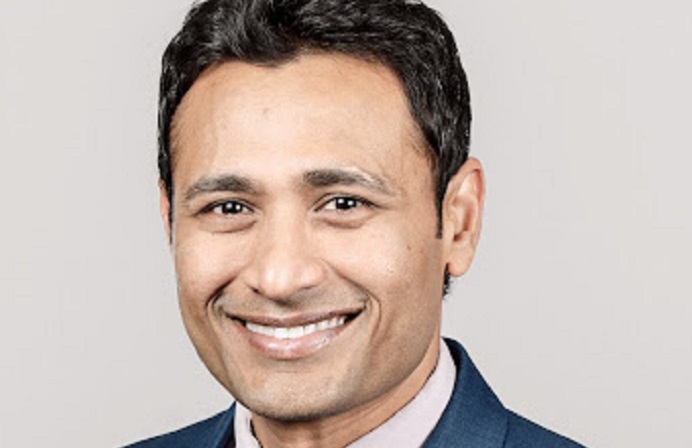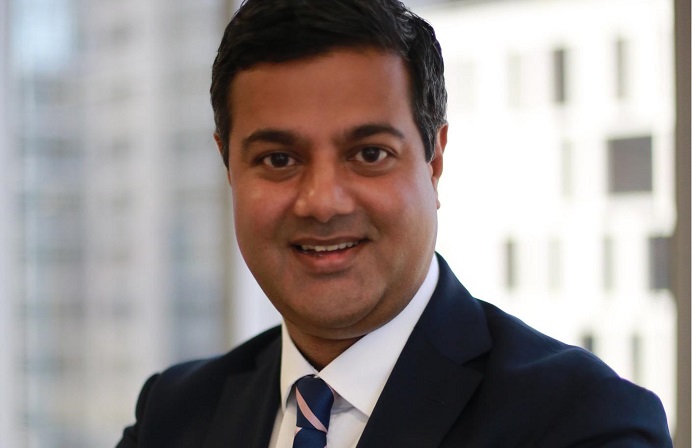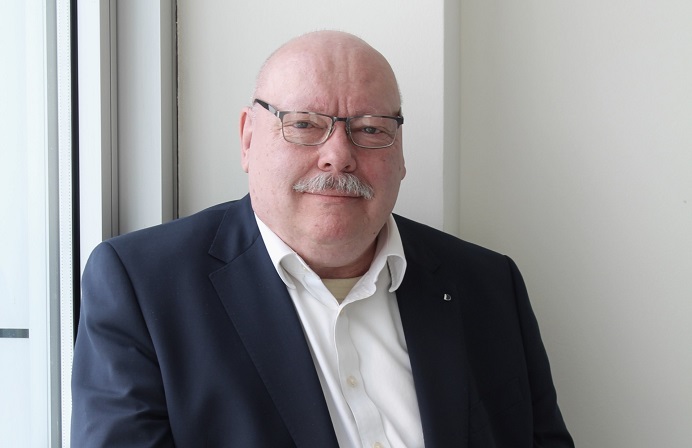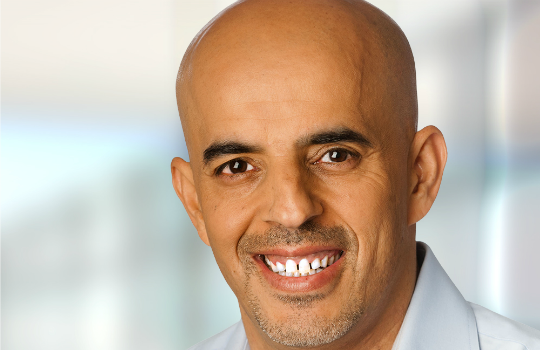
FST Media: What are your priorities for the next 6 months?
Sahgal: We have a clear strategy that we need to serve the full Enterprise as their customers engage with them on the voice and non-voice digital based channels.
FST Media: What are your priorities for the next 6 months?
Sahgal: We have a clear strategy that we need to serve the full Enterprise as their customers engage with them on the voice and non-voice digital based channels. Studies show consumers engage across multiple channels (on an average via 6 channels) transacting, seeking information and asking questions, etc. What is critical for enterprise to understand the journey of their customers across the various digital and non-digital channels. A customer may use their mobile device, then come on the web and then call the call centre to speak to someone. As such, understanding your customers is no more about knowing what they are doing in a single channel but rather their entire journey across the various channels.
As the digital adoption grows, the complexity of understanding your customer increases. This situation is further compounded by massive growth in the amount of data and the velocity at which it is coming through the multiple channels (the big data challenge). For NICE, we are strongly focused on bringing sophisticated analytics that take complex customer journeys and provide simple ways to help them visualise the “customer journey,” such that they can truly understand their customers issues and optimise their own ability to deliver the best service across each channel. Only throwing analytics at the problem is not enough. The ability to automate the actions that need to be taken from the analytical insights is critical. This is where NICE differentiates itself, we combine analytics with sophisticated operational tools to ensure we deliver “insights to actions,” so that Enterprises can respond to their customers at the “moment of truth” across all channels of interactions with their customers. Finally we can deliver this on premise or on the cloud.
FST Media: What technology or innovation is proving to be the single biggest game changer across the finance industry?
Sahgal: Delivering Customer Experience while ensuring security and complying with the regulator is always paramount in financial services industry. This is a challenge to deliver as security and regulatory requirements create checks and balances which can negatively impact customer experience. Voice-biometrics recognition technology has the potential to be a game changer. It delivers a competitive edge for financial services organisations by offering seamless authentication from customer calling in, reducing customer handling time, arresting fraud with criminals attempting to socially engineer agents, while delivering enhanced customer experience. Voice-biometric technology is easier to use than ever, with agents having the ability to verify customer identity during the natural flow of a call (free speech) rather than asking them multiple questions and frustrating consumers as they undergo authentication over long periods of time.
FST Media: How are you leveraging big data and analytics to meet industry demand for personalised products?
Sahgal: Customer interactions generate data, which, once analysed, lets organisations understand how to deliver customer-centric services. NICE delivers a broad range of cross-channel interaction analysis tools coupled with powerful predictive analytics and machine learning technologies. Importantly, the insights are delivered in real time, while customers are still in contact with the organisation. This lets customer service agents make smarter decisions, faster, at the moment of interaction.
FST Media: How does NICE work with the increasing risks of Cybersecurity and financial crime?
Sahgal: NICE leverages various technologies to make it easier for customers to fight cyber and financial crime. The cost of carrying out attacks continues to diminish as criminals access cheaper computing power, while the rewards for these criminals can be significant. As a result, it is difficult to keep up with the risks. The biggest risk is the unknown, so it’s essential to start by identifying the unknown risks and assessing the threats they pose. This proactive approach is necessary to be prepared to meet threats head-on. The question organisations must ask themselves is how quickly they can monitor vast amounts of data and identify suspicious behaviour? Pulling together relevant information from disparate sources is time consuming and expensive, without the proper tools.
FST Media: What challenges do businesses face in the era of big data?
Sahgal: Organisations tend to be pretty good at capturing and storing data. But using that data to gain valuable insights and make business decisions is more of a challenge. When companies analyse data effectively they can get powerful insights that lead to direct and accurate decision-making. It’s also essential to leverage data across different areas of the business. Silos make this difficult, as do organisational structures that don’t lend themselves to collaboration. Securing big data is another challenge that organisations need to consider. Companies holding masses of personal information must ensure it is protected from unauthorised access.
Like many emerging areas, big data faces the possibility of a skills gap. Companies may be struggling to find the right talent capable of both working with new technologies and of interpreting the data to find meaningful business insights. New roles such as that of the data scientist are cropping up and organisations need to decide whether to hire this talent in-house or outsource their big data analytics needs. The increasing reliance on data means access and connectivity issues can cause problems for organisations, so it’s important for them to make sure they have contingency plans and service level agreements in place. Finally, the ever-evolving landscape is moving fast, so it is hard for organisations to keep up with big data developments and manage their day-to-day operations at the same time. This is particularly true for businesses that don’t have a lot of extra resources to put towards data initiatives.
FST Media: What is the most promising trend in the finance industry at the moment?
Sahgal: Advanced analytics looks promising for the finance industry. It makes it possible for financial services organisations to detect threats and suspicious behaviour sooner. It also lets organisations achieve better protection thanks to gaining a holistic view of financial crime across the enterprise. It also gives them the ability to deliver superior customer experience by better understanding their customers. Open analytics gives users the control they need to respond quickly to challenges and meet the organisation’s business needs. NICE technology helps investigators remain productive without suffocating under the weight of constant alerts and alarms. It lets the organisation benefit from big data to detect issues rather than be overwhelmed by it.
FST Media: How can traditional and alternative financial services work together?
Sahgal: Disruption is happening in every industry and the financial services industry is no different. While alternative financial services may look different to traditional services, the truth is that the main difference is the delivery channel. This puts traditional financial services providers in an ideal position to assimilate the innovations of these disruptors into their own, existing offerings. This means banks can expand their footprint while attracting new customers.
Less a technical challenge and more a cultural challenge, merging alternative and traditional financial services can be made more successful for organisations that recognise the fact that consumers are better educated than ever before and so, too, are financial services institutions. This means leveraging technology to connect with consumers, as well as using analytics to gain insights into consumer behaviour, which can let the organisation make smarter decisions in terms of what products to offer, to whom, and when. As a result, the traditional financial services organisation can dramatically widen its potential customer base by offering alternative services where appropriate.
FST Media: What is the next big things for NICE and how will you measure its success?
Sahgal: NICE takes a lot of pride in driving disruptive innovations. Our goal is not to simply provide solutions for today, but we are constantly looking to introduce frameworks and innovation to future proof our solutions. The idea is not only to meet today’s business needs but also emerging trends. This requires us to constantly innovate, but not about one big thing but several innovations which when combined together provides enterprises game changing business solutions to leapfrog themselves at the pace which makes sense to their own fundamental strategy. All of this is balanced by making sure we meet our shareholders commitment of being public company, delivering on our promise to our customers and partners, and finally taking care of our most prized asset, our employees at NICE.
FST Media: How will IT continue to impact finance in the future?
Sahgal: Banking has evolved significantly since the days of walking into a physical branch with a transaction book, which you could touch and feel, to access or transfer your money. Digital channels make it easy to move money around the world or give a few dollars to a friend with a single click. For many, cash is no longer part of their lives. The impact of technology on banking is only going to grow as new technologies continue to emerge. Banks will continue to become more virtual and offer niche products and services that wouldn’t have been possible in the traditional banking age. Automation is already an accepted business practice, with businesses automating many financial processes to streamline operations. As a result, many of the repetitive bookkeeping tasks can now be outsourced or automated, reducing the need for bookkeepers within organisations. This means accounting businesses need to change their business model if they want to avoid falling behind.
At the same time, more services are delivered over the phone and online, which creates a need for better and more efficient authentication processes. Financial service providers will need to find ways to differentiate their service, while all organisations will be looking for more effective ways to protect people and assets, and fight financial crime. This will lead to even more rapid technology development aimed at streamlining customers’ ability to access their money and information while strengthening protection against unauthorised access. As a result, there is likely to be an increased need for technology skills and talent within the finance industry.
FST Media: What is the best career advice you can give?
Sahgal: Embrace new innovations constantly into your organisations to stay relevant.

